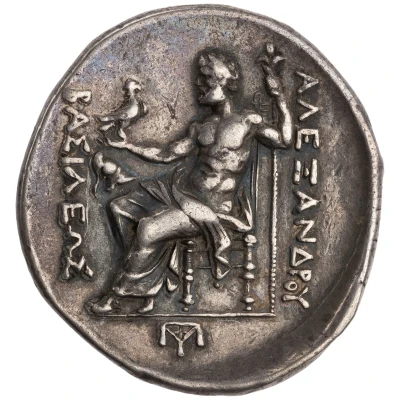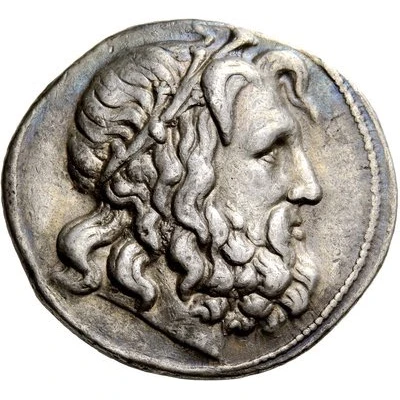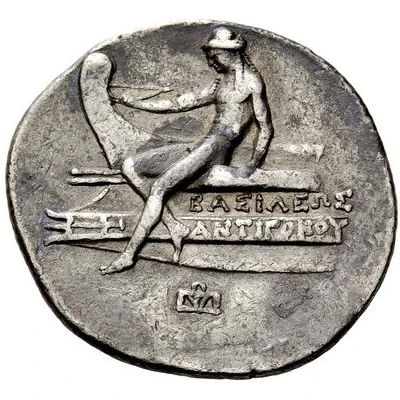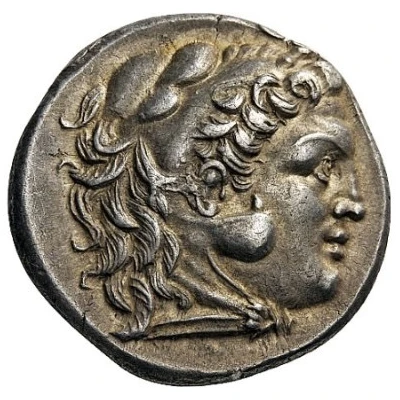
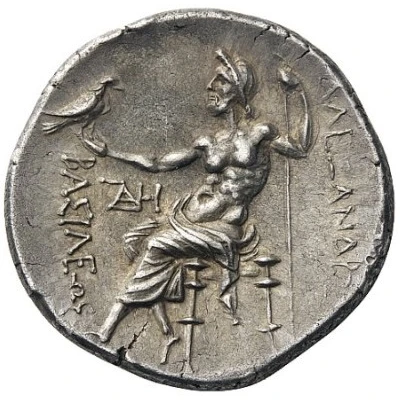

© Nomos AG
Tetradrachm In the name of Alexander III; Callatis 250 BC - 225 BC
| Silver | 16.76 g | 28.0 mm |
| Issuer | Kingdom of Macedonia |
|---|---|
| King | Antigonus II Gonatas (277 BC - 239 BC) Demetrius II Aetolicus (239 BC - 229 BC) |
| Type | Standard circulation coin |
| Years | 250 BC - 225 BC |
| Value | Tetradrachm (4) |
| Currency | Drachm |
| Composition | Silver |
| Weight | 16.76 g |
| Diameter | 28.0 mm |
| Shape | Round (irregular) |
| Technique | Hammered |
| Orientation | Variable alignment ↺ |
| Demonetized | Yes |
| Updated | 2024-10-10 |
| Numista | N#185533 |
|---|---|
| Rarity index | 100% |
Reverse
Zeus seated left on high-backed throne, holding eagle in his right hand and long scepter in his left. To left, monogram and below throne, grain ear
Script: Greek
Lettering: ΒΑΣΙΛΕΩΣ ΑΛΕΞΑΝΔΡΟΥ
Interesting fact
The Tetradrachm coin was used during the reign of Alexander III, also known as Alexander the Great, who was the king of the ancient Greek kingdom of Macedonia. This coin was used as a means of payment and exchange during his military campaigns, and it features an image of Alexander the Great on one side and a goddess on the other. The coin was made of silver and weighed 16.76 grams, which was a significant amount of silver at the time. It's interesting to note that the Tetradrachm coin was widely used throughout the ancient Greek world and was considered a standard unit of currency. It was also used as a symbol of power and wealth, and the image of Alexander the Great on the coin was seen as a representation of his authority and influence. I hope this information is helpful! Let me know if you have any other questions.

